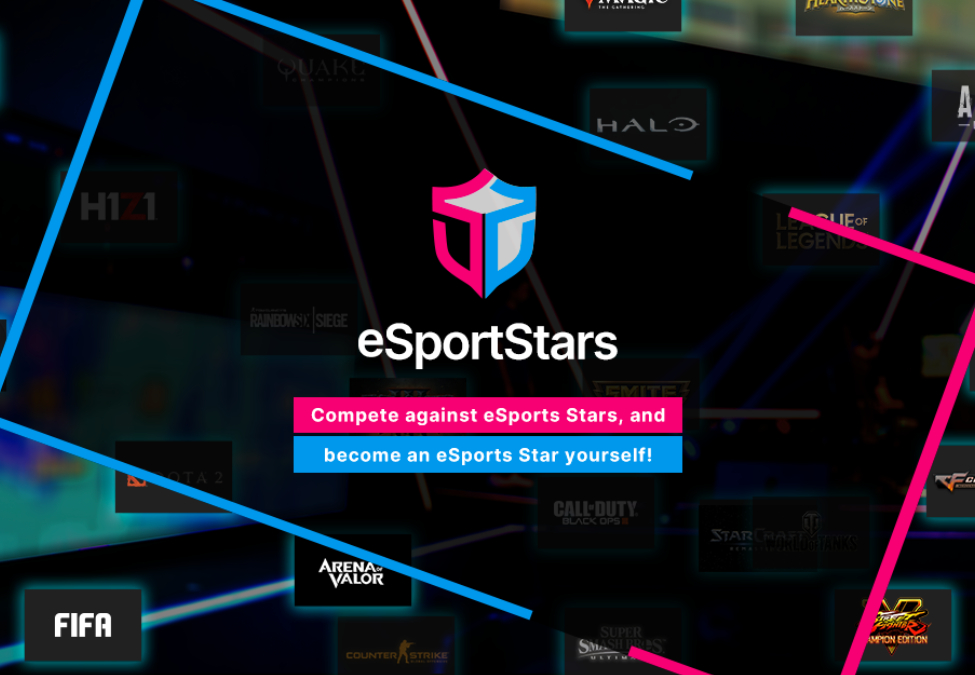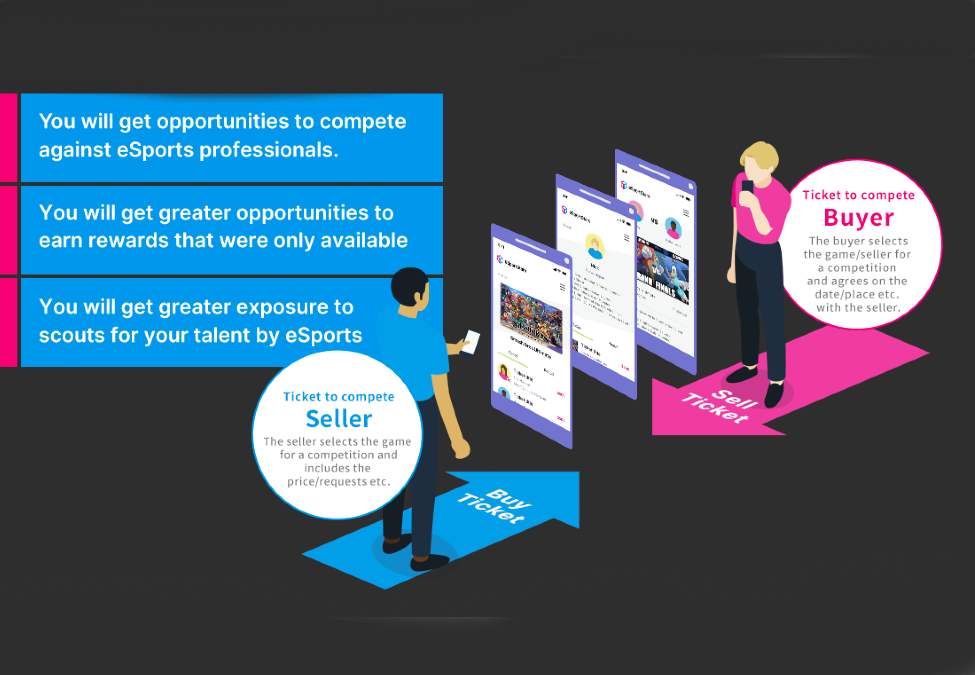Slated to launch in October 2020, eSportStars is a Japan-based gaming and esports matching platform that intends to open up a new revenue stream for professional esports players.
The company will offer a platform where casual fans, aspiring pros, and semi-professionals alike can buy ‘tickets’ to compete against their idols and existing pros across several games. Masato Kakamu, Founder and CEO of eSportStars, hopes that professional players will be able to engage with their fans in a whole new way, whilst getting paid to play the game they love.
Ahead of the platform’s launch, we talked with Masato to find out more about eSportStars’ preregistration plans, and how he hopes the platform will positively impact several stakeholders in the esports ecosystem.

Masato explained his vision for the platform and how he believes it would benefit numerous esports stakeholders: “Most esports professionals and those who are rising through the semi-professional ranks struggle to make ends meet, but they still have to practice for 10 hours per day. On top of this, it can be hard to allocate time to engage with their fans so eSportStars wants to give players an opportunity to make money, practice their game and engage with fans all at the same time. Semi-professional players can compete against those with a higher status in the community, and fans can play against their favourite players.”
“I want this platform to serve as a way for talent to be scouted by big organisations.”
Masato went on further to describe how – in addition to providing fans with a platform to engage with their favourite players – he wants extra functionality and in-built features to enable semi-professional players to use eSportStars as a proving ground where they can compare and contrast themselves with the platform’s professionals. Masato noted: “I want this platform to serve as a way for talent to be scouted by big organisations.”
[primis_video widget=”5183″]
Right now, the only organisations present on the eSportStars platform are Japanese, but Masato hopes that the website will include North American, European and Chinese organisations ahead of the scheduled October launch. By utilising existing relationships with the platform’s current roster of professional players and organisations, Masato plans to convince stakeholders from across the Pacific to come on board. According to Masato, eSportStars has already been in discussion with a leading North American esports org, but the platform’s unproven nature has made talks challenging.
In order to be better placed to secure top esports teams worldwide, and their rosters of talent and armies of fans, Masato recognises that he needs to increase the number of user sign-ups to the platform. After a short test marketing exercise, eSportStars has already enlisted approximately 1000 users, but Masato and his team are aiming for much more. eSportStars is looking to hit a colossal 100,000 registered users per supported language – of which there are initially three – within the first few months of the website’s launch. By the end of the calendar year, Masato has aspirations for a total user base of 1,000,000 users. Almost in a chicken and egg situation, Western users may find themselves reluctant to sign up for a platform with no European or North American professional players, but the organisations that manage said players may be hesitant to get involved without the pre-existing user base.

In an effort to break the deadlock, Masato explained that eSportStars will be trying to market the platform in the coming weeks and months through creator events, competitions typically hosted online between members of the creator community similar to Twitch Rivals. The platform has already hosted a PUBG Mobile tournament in Japan to try and spur interest, but Masato hopes that similar events in CS:GO and VALORANT could lead to even more success further afield. eSportStars also intends to increase the number of games it supports to try and target those most popular in its key target markets.
Whilst Masato recognises that it may be difficult to get an initial cluster of players onboard, he is confident that eSportStars will hit the targets set. Masato also heads up TIME TICKET, another digital platform on which users can buy and sell tickets in a similar way to eSportStars. Using his experience in growing the TIME TICKET platform to more than 250,000 users, Masato believes that the bold targets can be met.
Over the last few years, many mainstream media outlets have taken snapshots of esports through the lens of events such as the Fortnite World Cup or The Invitational to suggest that all competitors are paid handsomely, but in many respects, this simply isn’t the case. Whilst Overwatch League MVPs, and members of the Astralis Group organisation as one specific example receive substantial remuneration, many professional players in smaller organisations or esports make significantly less money. Irrespective of how close eSportStars comes to reaching their ambitious targets, it’s fantastic news to realise that Masato and his team are trying to develop a new product to increase wider fan engagement and expanded player revenue streams.
Disclaimer: This is a sponsored piece by eSportStars, to learn more visit its website
